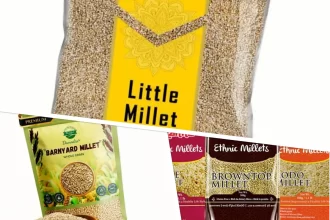Let’s check out the world of intermittent fasting (IF), a popular health trend that’s been gaining a lot of buzz lately. Whether you’re looking to improve your metabolism, shed some pounds, or simply adopt a healthier lifestyle, intermittent fasting might be the answer. Here’s everything you need to know to get started!
What is Intermittent Fasting?
Intermittent fasting isn’t about what you eat, but when you eat. It involves cycling between periods of eating and fasting. Unlike traditional diets, IF doesn’t prescribe specific foods, but rather focuses on meal timing. Here are some common methods:

Summary
Intermittent fasting (IF) focuses on meal timing to potentially improve metabolism. Methods include the 16/8, 5:2, Eat-Stop-Eat, Alternate-Day Fasting, and Warrior Diet.
Benefits of Intermittent Fasting
Intermittent fasting (IF) has gained popularity for its potential health benefits beyond weight loss. By alternating periods of eating and fasting, IF can positively impact various aspects of health. Here are some key benefits:
Summary
Intermittent fasting (IF) alternates eating and fasting periods, offering potential benefits such as weight loss, improved metabolism, better blood sugar control, and enhanced heart health.

Intermittent Fasting in Cultures
Intermittent fasting isn’t just a modern health trend; it has deep roots in various cultural and religious practices, particularly within Hinduism and Islam.
Intermittent Fasting in Hinduism
In Hindu culture, fasting is a common practice with both spiritual and physical benefits. Various forms of fasting are observed, such as:
These fasting practices are seen as a way to purify the body and mind, enhance spiritual growth, and demonstrate self-discipline.
Intermittent Fasting in Islam
Muslims practice intermittent fasting extensively during the holy month of Ramadan. From dawn until sunset, they abstain from eating and drinking. This period of fasting, known as sawm, serves several purposes:
Outside of Ramadan, many Muslims also observe Sunnah fasting on specific days, such as Mondays and Thursdays, following the practices of the Prophet Muhammad.
Summary
Fasting practices vary widely across cultures and religions, such as Hindus observing Ekadashi and Navratri, and Muslims practicing intermittent fasting during Ramadan (sawm) for spiritual purification and health benefits.
How to Get Started with Intermittent Fasting
Starting your intermittent fasting (IF) journey can be transformative for both health and lifestyle. Whether you’re aiming for weight loss, improved metabolic health, or other benefits, starting with the right approach is crucial. Consider these essential steps to begin your IF journey effectively:
Summary
Starting intermittent fasting can revolutionize your health journey, beginning with choosing the right method, gradually increasing fasting periods, staying hydrated, focusing on nutrient-dense foods, and maintaining consistency.
Tips for Success
Achieving success with intermittent fasting (IF) involves more than just adjusting your eating schedule—it’s about adopting a sustainable approach that fits your lifestyle. Here are some tips that works for us:
Intermittent fasting is a versatile and effective approach to improving your health and wellness. Give it a try, and see how it works for you. Remember, it’s all about finding a routine that suits your lifestyle and supports your health goals.
Stay tuned for more health tips and trends to help you live your best life!
And feel free to share your experiences or ask questions in the comments below. We love hearing from you!

Summary
Achieving success with intermittent fasting (IF) involves adopting a sustainable approach that fits your lifestyle.
Top Intermittent Fasting (IF) Questions Answered
What are the benefits of intermittent fasting?
Intermittent fasting can aid weight loss, improve metabolic health, enhance brain function, and potentially increase lifespan through various physiological adaptations.
Which intermittent fasting method is best for beginners?
The 16/8 method, where you fast for 16 hours and eat within an eight-hour window, is often recommended for its simplicity and flexibility.
How does intermittent fasting help with weight loss?
By reducing calorie intake and enhancing fat burning through increased metabolism, intermittent fasting can promote weight loss effectively.
Is intermittent fasting safe for everyone?
While generally safe for healthy individuals, pregnant or breastfeeding women, individuals with eating disorders, or those with certain medical conditions should consult a healthcare professional before starting IF.
Can intermittent fasting improve metabolic health?
Yes, intermittent fasting can lower insulin resistance, reduce inflammation, and improve various metabolic markers, benefiting overall metabolic health.
What should I eat during intermittent fasting?
Focus on nutrient-dense foods such as vegetables, fruits, lean proteins, healthy fats, and whole grains during your eating window to support health and energy levels.
How long does it take to see results from intermittent fasting?
Results vary, but many people experience noticeable benefits, including weight loss and improved energy levels, within a few weeks of starting intermittent fasting.
What are some common challenges when starting intermittent fasting?
Initial hunger and adjusting to new eating patterns are common challenges. Staying hydrated and choosing nutritious foods during eating windows can help manage these challenges.
Can intermittent fasting be combined with other diets, like keto or paleo?
Yes, intermittent fasting can complement various diets like keto or paleo, enhancing their benefits by optimizing nutrient absorption and metabolic function.
How can I maintain consistency with intermittent fasting?
Plan your fasting and eating windows around your daily routine, prioritize hydration and balanced nutrition, and allow flexibility for social events to maintain consistency with intermittent fasting.










